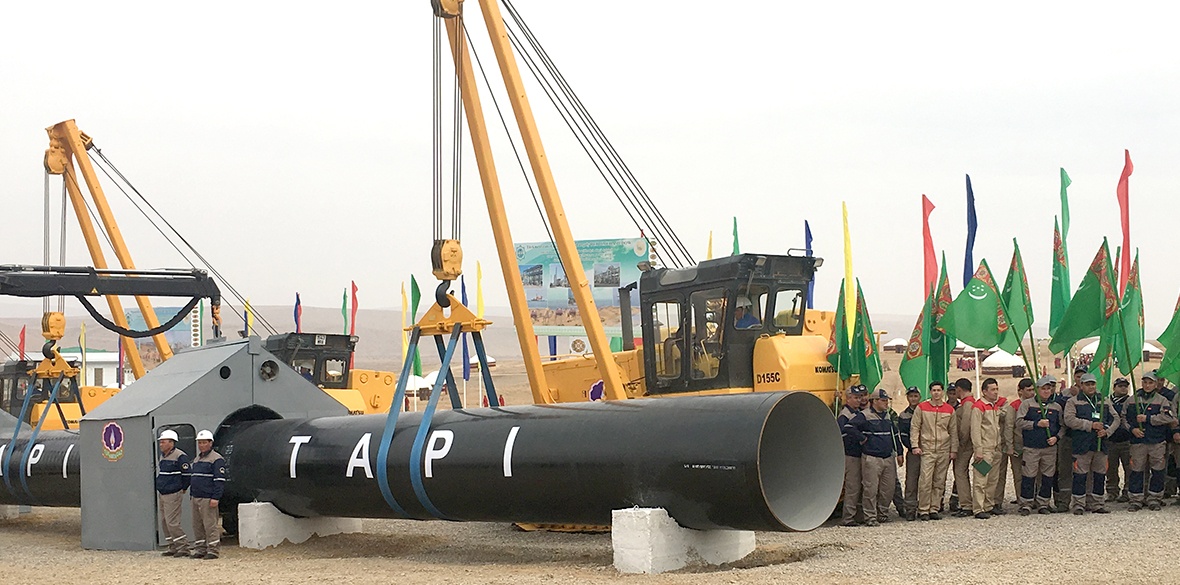This is the last article you can read this month
You can read more article this month
You can read more articles this month
Sorry your limit is up for this month
Reset on:
Please help support the Morning Star by subscribing here
IN light of the 22nd meeting of the Shanghai Co-operation Organisation (SCO) it is clear that no matter what, for the sake of sovereignty, development, security and the denial of hegemony, Eurasian co-operation must always prevail over confrontation.
Internal contradictions, such as India’s border disputes with Pakistan and China, as well as Russia’s claims in central Asia, must be transcended to ensure that the primary contradiction, arising from outside Eurasia, does not lead to the ruin of all.
The source of this primary contradiction comes from US-led Western capital whose intent, as demonstrated by the destruction of Afghanistan, is to keep the Eurasian landmass, which threatens US-hegemony, in chaos.
Large continental powers, far from US hegemony, which is enforced through a naval rim strategy, must be brought to heel or demolished. The Ukraine conflict is a war that seeks to grind Russia down and cut Europe away from Eurasia while remittances from weapons sales return to the imperial core.
This “Ukraine strategy” is also being fomented by the US against China which hopes, through various belligerent acts of congress, to goad China into military action against Taiwan. Assuming nuclear war doesn’t ensue, simultaneous wars in Europe and Asia would, just like the previous two world wars, benefit a “resting” US.
China and Russia are currently in the same boat. Due to Russia’s existential fear of its European heartland being invaded through Nato encroachment, along with the protection of ethnic Russians, it invaded Ukraine.
This in turn has led Russia to “turn east” away from US-dominated Europe toward China and India. Likewise, China’s fear of aggression on its eastern seaboard has led to its “turn west” where it seeks to build up overland trade routes, through the Belt and Road Initiative (BRI), in case the Taiwan card is ever played.
If India develops independently then history proves it will also be targeted. So far, it has not been brought to heel by the US and consequently, like China, refuses to scupper its economy by cutting trade ties with Russia. However, a lack of connectivity will mean India remains, like Europe, an island cut off from Eurasia and thus at the whims of others’ naval projection. As such, India must “turn north.”
Russia, China, and India’s potential strategic push converge in central Asia, which means they must co-operate and overcome their contradictions. This co-operation must ultimately take into account the needs of central Asia too.
Russia needs the China market but without China’s “turn west” China’s long-term security is threatened, which by extension would also threaten Russia’s long-term security. As such, Russia must allow space for former-Soviet states’ sovereign co-operation with “outsiders,” which will allow them to develop while balancing out their own Russia-related existential dilemmas.
This existential dilemma is as follows. Former-Soviet “Stans” also have significant Russian minorities and like Ukraine have a close historical relationship with Russia, which traditionally sees the region as its exclusive zone.
What if central Asian co-operation with outside powers and their internal ethnic policies eventually leads to a similar Ukrainian response? This angst could be further intensified as Russia “turns east.” As such, the Stans need to “turn everywhere.”
This contradiction is prominently highlighted by the Stans’ lack of support for Russia’s Ukraine actions. Then, the largest central Asian state, Kazakhstan, obviously is seeking greater balance.
This truth was prominently highlighted by the Kazakh president, Kassym-Jomart Tokayev, taking Xi Jinping around an exhibition of ancient Kazakh and Chinese historical items before the SCO summit, which demonstrated that Kazakhstan also has ancient ties justifying its turning east.
Due to the aforementioned geopolitical connectivity, this has not dented the Sino-Russian relationship. Notably, when Xi and Putin met, on the sidelines of the SCO, both reaffirmed their shared interests, which included the importance of sovereignty, the need for greater socio-economic development, and a more equitable global order characterised by non-interference in internal affairs which respects others’ core interests.
As such, central Asia is set to be a zone for “great power engagement” and BRI co-operation will continue to ramp up. The long-dreamed of China-Kyrgyzstan-Uzbekistan railway has already got the go-ahead in June despite the fact that it will compete with overland Russian routes.
With greater economic development, the Stans’ comprehensive strength will be enhanced. This will deny the conditions needed for foreign-backed destabilisation activities, such as the US-sponsored Kazakh coup, which, like the occupation of Afghanistan, threatens the unity, security, and joint development of Eurasia.
Sino-Russia reliance means it is in their collective interest to develop central Asia and in the future, and the same courtesy must be extended to India too. This is because India’s market will become ever more important for Russian resources. For India, if it connects overland to Russian and central Asian resources then it will be less reliant on sea trade and lower resource costs, which can spur its industrial growth.
Multilateral organisations such as the SCO lay the groundwork for this joint co-operation. Considering the SCO allows India to co-operate with Pakistan on security issues, within the wider context of pursuing common development in the global South, the SCO can undoubtedly also be the foundation for India’s “turn north” which would become a major driver of the global economy.
Co-operation with Pakistan and a peaceful Afghanistan may one day lead to greater infrastructure such as the Tajikistan-Afghanistan-Pakistan-India gas pipeline. While this may not be feasible at present China is already said to be keen on going ahead with a Russia-China-India gas pipeline.
India has reservations though because it feels its room to manoeuvre in a conflict may be compromised. However, not being connected would, like Russia, China, and central Asia, leave them truly compromised.
India is undoubtedly conscious of this fact which is why this September both China and India pulled back from their disputed border region.
This shows that neither India nor China wishes for a hangover from British imperialism to muddy the bigger picture. At any rate, both states can circumvent their border dispute by building connecting infrastructure through Nepal.
China and India want greater access to central Asian and Russian resources and Russia needs the Indian and Chinese markets. With central Asia being the crossroads of this co-operation, making it an exclusive sphere, belonging to one power, is counterproductive and goes against the spirit of multilateralism and sovereign development, to which all major Eurasian powers subscribe to.










